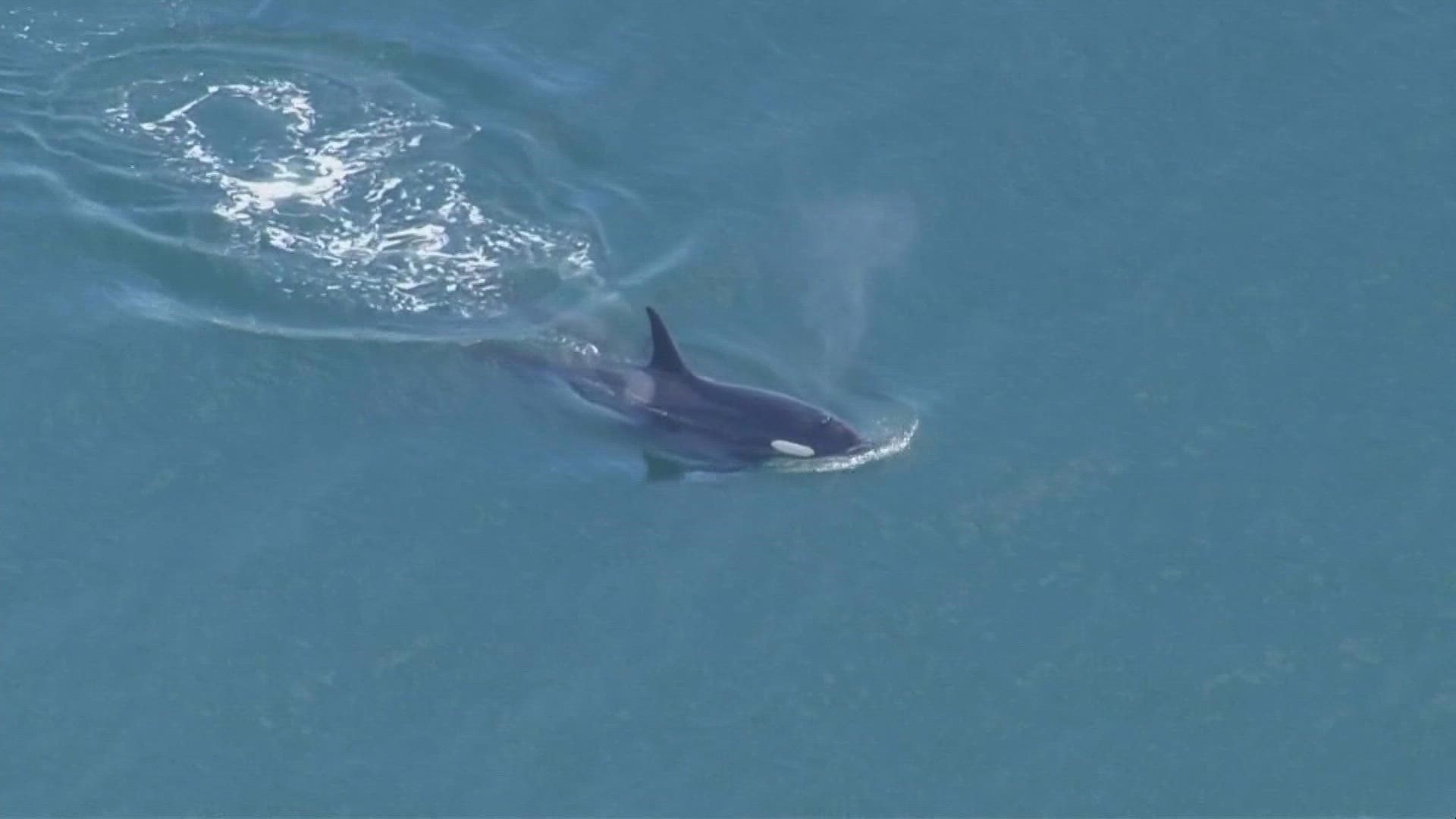BELLINGHAM, Wash — All three Southern Resident killer whale pods have been spotted in the Salish Sea for more than two weeks, which is something that hasn't happened in recent memory, according to the Orca Behavior Institute.
The pods have been spotted from south Puget Sound all the way north to the Campbell River in British Columbia, the institute wrote on Facebook.
While it has become a rarity for the orca pods to remain in the area for such a long stretch, fish runs used to be abundant enough to support the Southern Residents for weeks at a time in the summer and fall, the institute said. The presence of the whales is a good indicator that there are enough fish for the orcas to feed on.
According to numbers from WDFW, Puget Sound chum runs have been improving since 2019, which was the worst chum season in 40 years. This year, the fall run came in at an estimated 600,000-700,000 fish, which was double the number originally predicted. State and tribal experts had originally predicted a run of about 300,000 fish, a decline from 2021.
The institute noted the whales are also spending a lot of time in the Strait of Georgia, which is a good sign that there are likely abundant winter Chinook. Chinook don't go out into the open ocean, but instead, spend the majority of their life in inland waters. The run numbers have been relatively consistent over the last 50 years, according to the institute, which is one reason why Southern Residents, and the J-pod in particular, are often around in the winter months.
Many efforts are underway to reduce underwater noise, restore habitats and renew salmon populations. People can also help by following regulations for travel distance and speed in relation to orcas.
Boaters and kayakers should stay at least 300 yards from the sides of orcas and at least 400 yards out of the path behind or in front of them, according to Be Whale Wise. They should also slow down to 7 knots within a half mile of SRKWs, watch for and use Whale Warning flags, turn off fish finders and in-depth sounders if they see whales in the distance, and encourage positive behavior by reporting violators, according to Washington State Parks.

